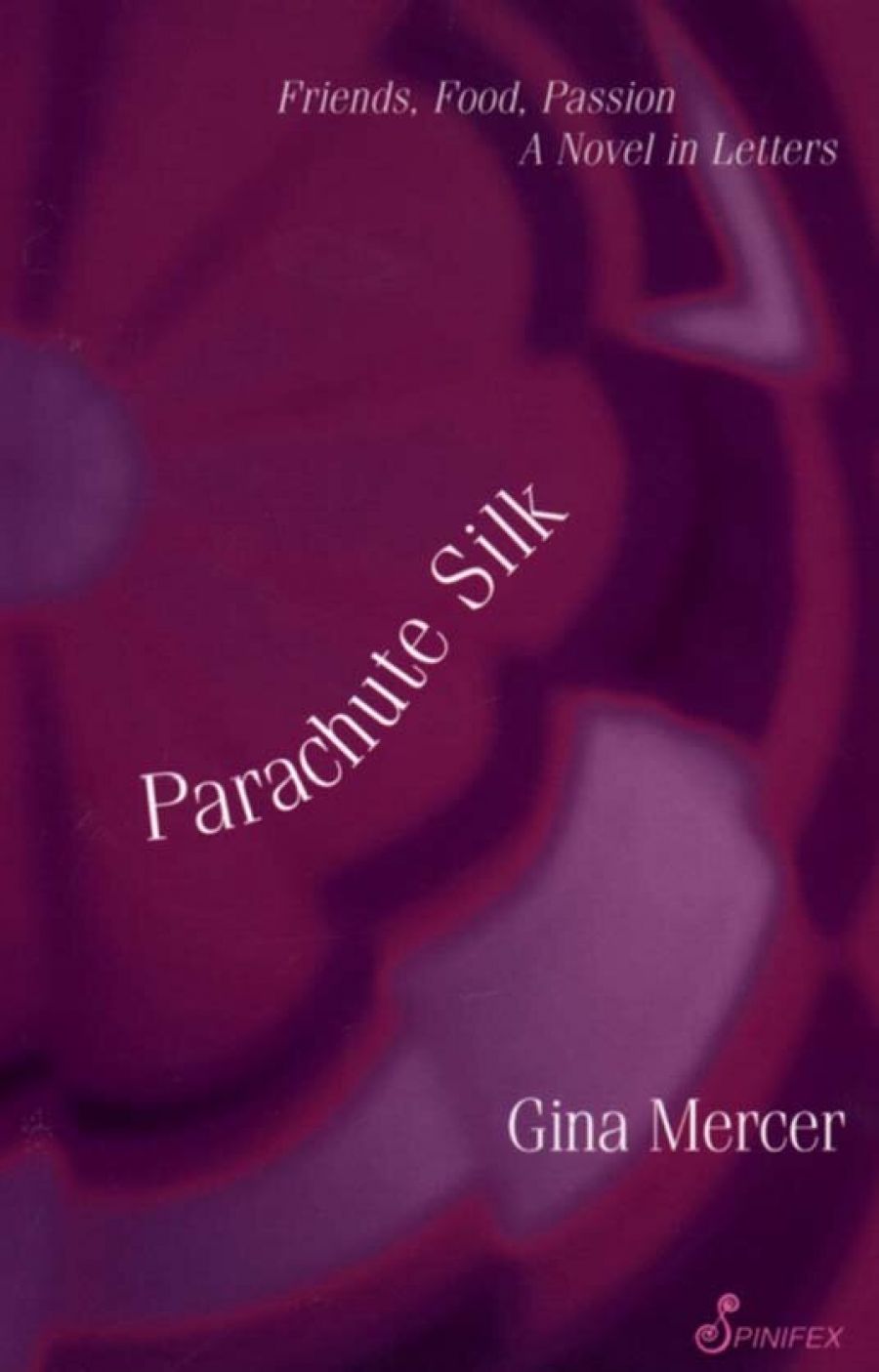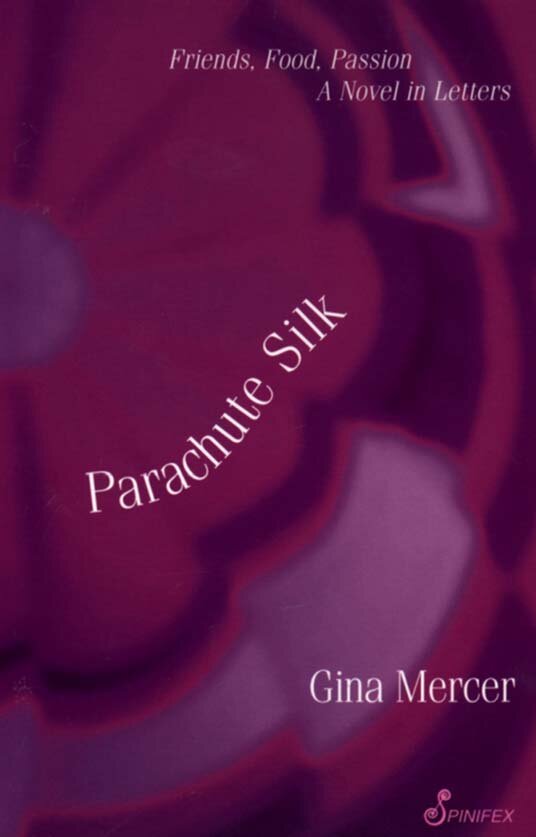
- Free Article: No
- Contents Category: Fiction
- Review Article: Yes
- Article Title: An Epistolary Novel
- Online Only: No
- Custom Highlight Text:
There is little doubt that few people write letters anymore. Nowadays, personal communication is conducted via e-mails and mobile phone messages, much to the dismay of manuscript collectors and researchers. So, it is surprising to come across what the publishers describe as ‘a novel in letters’, Parachute Silk, by Gina Mercer.
- Book 1 Title: Parachute Silk
- Book 1 Biblio: Spinifex, $24.95pb, 210 pp
- Book 1 Cover Small (400 x 600):

- Book 1 Cover (800 x 1200):

In Parachute Silk, Mercer has set herself the task of exploring the most intimate recesses of two women’s lives through their discussion and description of their partners, children, work, dreams and so on. The correspondence, over a period of a year and a half, allows, as Richardson theorised, the assumption of no-holds-barred blood-letting and breast-beating. There are some pretty hairy exchanges: ‘did you really have to send that letter? It was so chock full of home-spun clichés I almost threw up … Next time you think you’re super-sophisticated because you’ve “DISCOVERED” some simple truth, don’t bother bloody telling me about it.’
For the most part, however, it is difficult to imagine even the most post-postmodern of friends writing to each other in this way. For this reader, unfortunately, no amount of willing suspension of disbelief can account for much of the language, which too often seems self-conscious and some-times precious – hardly what you might describe as ‘instantaneous’ (‘badger-burrow back into her bed’; ‘plod along those old traces like a worn-out pit pony’; ‘thicket-certain’).
Of course, this may reveal more of a paucity on my part – the sterling truth that my own letters and those of my friends and family are as prosaic as old carpet squares. Still, why is it that one can accept as credible the most outrageous feats of verbal repartee and elegant description in, say, Clarissa Harlowe (1748) or Les Liaisons Dangereuses (1782) but find oneself baulking at more recent attempts? Perhaps it is easier to imagine those generations of practised letter-writers for whom correspondence was an important social art and attribute, polishing and re-copying their epistles over and over until they gleamed like the family’s silver, than it is in an age when people lead such busy lives and time for letter-writing is hardly at a premium.
But (and herein lies my conundrum) one of Mercer’s correspondents (Finn) is a writer – more specifically, a poet, as is the author herself – the other a therapist. I have to admit logically, that it would be hard to find two types more self-conscious and adept at word games. The book is bursting with Finn’s poems, for example, often to its detriment. Clearly, fitting them in has given the designer some headaches.
Nevertheless, it is important to note that Parachute Silk also engages with a number of compelling issues such as ageing, parenting, menopause, gender roles, grief, suicide and the significance of sexual experiences in shaping our lives and personalities. Neither Finn nor Molly keeps any secrets on these subjects, although Finn does try, only to break down in the end. And, for Mercer, as with other modern writers, this simple aspect of the narrative – the end – presents a similar problem to that postulated by Virginia Woolf in The Waves: ‘why impose my arbitrary design? … are there stories? …if there are no stories, what end can there be, or what beginning?’
Unlike earlier epistolary works or even more innocent ones such as 84 Charing Cross Road, Mercer cannot depend, for beginning or end, on the housemaid taking up her duties, the first book order being sent; nor the convenient and inevitable death or marriage as reward for virtue. Instead, her correspondents must make a deliberate choice to begin writing (we are not given any particular reason or circumstance to account for this), although, ostensibly, for Molly at least, it is to learn about the past sexual exploits of her friend: ‘why [you’re] not currently a lesbian’. The ‘ending’ (an arbitrary 207 pages? the demands of a publisher? folio folds?) has to be left as it were while the reader is left to imagine whether there will be a Letters Volume II.
In many ways, this would be good. There are some nice recipes (although I don’t think I’ll try the beetroot risotto) and fascinating quotes and references which would be well worth following up. There’s a Cherokee Indian curse – ‘Careful, my knife drills your soul … listen … I’ll cover your bones with black feathers’ – that will come in very handy. Mercer does write with passion and sincerity. Difficult though I sometimes found them, I also liked and empathised with the characters. It just feels as though it’s all been done before.


Comments powered by CComment